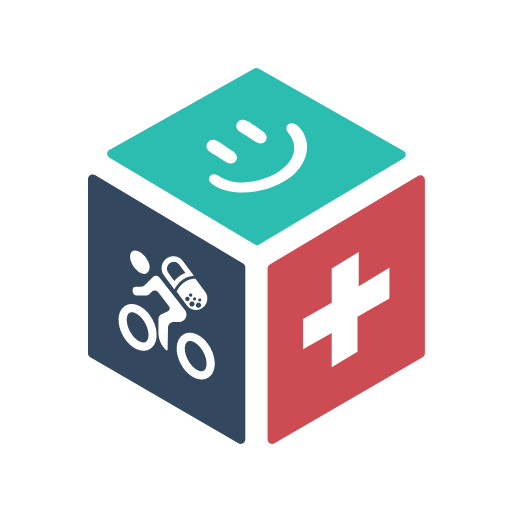Generic Information
PIOGLITAZONE + METFORMIN HYDROCHLORIDE
Pioglitazone & Metformin combination is indicated as an adjunct to diet and exercise to improve glycemic control in patients with type 2 diabetes who are already treated with a combination of Pioglitazone and Metformin or whose diabetes is not adequately controlled with Metformin alone or for those patients who have initially responded to Pioglitazone and require additional glycemic control.
Combination Oral hypoglycemic preparations
Pioglitazone depends on the presence of insulin for its mechanism of action. Pioglitazone decreases insulin resistance in the periphery and in the liver resulting in increased insulindependent glucose disposal and decreased hepatic glucose output. Pioglitazone is a potent and highly selective agonist for peroxisome proliferator-activated receptor-gamma (PPARg). Activation of PPARg nuclear receptors modulates the transcription of a number of insulin responsive genes involved in the control of glucose and lipid metabolism. Metformin hydrochloride improves glucose tolerance in patients with type 2 diabetes, lowering both basal and postprandial plasma glucose. Metformin decreases hepatic glucose production, decreases intestinal absorption of glucose and improves insulin sensitivity by increasing peripheral glucose uptake and utilization. Unlike sulfonylureas, metformin does not produce hypoglycemia in either patients with type 2 diabetes or normal subjects and does not cause hyperinsulinemia.
General: The use of antihyperglycemic therapy in the management of type 2 diabetes should be individualized on the basis of effectiveness and tolerability while not exceeding the maximum recommended daily dose of Pioglitazone 45 mg and Metformin 2550 mg. Dosage Recommendations: Selecting the starting dose of Pioglitazone & Metformin should be based on the patient's current regimen of Pioglitazone and/or Metformin. Pioglitazone & Metformin should be given in divided daily doses with meals to reduce the gastrointestinal side effects associated with Metformin. Starting dose for patients inadequately controlled on Metformin monotherapy Based on the usual starting dose of Pioglitazone (15-30 mg daily), Pioglitazone & Metformin may be initiated at either the 15 mg/500 mg or 15 mg/850 mg tablet strength once or twice daily, and gradually titrated after assessing adequacy of therapeutic response. Starting dose for patients who initially responded to Pioglitazone monotherapy and require additional glycemic control Based on the usual starting doses of Metformin (500 mg twice daily or 850 mg daily), Pioglitazone & Metformin may be initiated at either the 15 mg/500 mg twice daily or 15 mg/850 mg tablet strength once daily, and gradually titrated after assessing adequacy of therapeutic response. Starting dose for patients switching from combination therapy of Pioglitazone plus Metformin as separate tablets Pioglitazone & Metformin may be initiated with either the 15 mg/500 mg or 15 mg/850 mg tablet strengths based on the dose of Pioglitazone and Metformin already being taken. Maximum Recommended Dose: Pioglitazone & Metformin tablets are available as a 15 mg Pioglitazone plus 500 mg Metformin or a 15 mg Pioglitazone plus 850 mg Metformin formulation for oral administration. The maximum recommended dose for Pioglitazone is 45 mg daily. The maximum recommended daily dose for Metformin is 2550 mg in adults. Special Patient Populations: The initial and maintenance dosing of combination of Pioglitazone and Metformin should be conservative in patients with advanced age, due to the potential for decreased renal function in this population. Generally, elderly, debilitated, and malnourished patients should not be titrated to the maximum dose of combination of Pioglitazone and Metformin. Monitoring of renal function is necessary to aid in prevention of Metformin associated lactic acidosis, particularly in the elderly. Therapy with combination of Pioglitazone and Metformin should not be initiated if the patient exhibits clinical evidence of active liver disease or increased serumtransaminase levels (ALT greater than 2.5 times the upper limit of normal) at start of therapy. Liver enzyme monitoring is recommended in all patients prior to initiation of therapy with combination of Pioglitazone and Metformin and periodically thereafter
May impair vit B12 absorption. Increased plasma levels with strong CYP2C8 inhibitors (e.g. gemfibrozil). Decreased plasma levels with CYP2C8 inducers (e.g. rifampicin). Reduced metabolism with cationic drugs eliminated by renal tubular secretion.
Contraindicated in patients with: Renal disease or renal dysfunction (e.g. as suggested by serum creatinine levels >1.5 mg/dl in male, >1.4 mg/dl in females or abnormal creatinine clearance), which may also result from conditions such as cardiovascular collapse (shock), acute myocardial infarction and septicemia. Known hypersensitivity to Pioglitazone, Metformin or any other component of this combination. Acute or chronic metabolic acidosis including diabetic ketoacidosis with or without coma.
Generally this combined preparation is well tolerated. However, the most common side effects are upper respiratory tract infection, diarrhea, peripheral edema and headache, respectively. These are mild in severity.
Pregnancy: There are no adequate and well-controlled studies in pregnant women with this combination or its individual components. So, it should only be used if the potential benefit justifies the potential risk to the fetus. Nursing mother: It is not known whether Pioglitazone and/or Metformin are secreted in human milk. Because many drugs are excreted in human milk, this combination should not be administered to a breastfeeding woman.
In the event of Overdosage, appropriate supportive treatment should be initiated according to patient's clinical signs and symptoms.
Pioglitazone exerts its antihyperglycemic effect only in the presence of insulin. Therefore, Pioglitazone should not be used in patients with type 1 diabetes or for the treatment of diabetic ketoacidosis. Pioglitazone should be used with caution in combination especially with insulin, hepatic insufficiency and heart diseases. Metformin is known to be substantially excreted by the kidney and the risk of Metformin accumulation and lactic acidosis increases with the degree of impairment of renal function. Thus patients with serum creatinine levels above the upper limit of normal for their age should not receive this combination.
Store in a cool and dry place. Protect from light and moisture. Keep out of the reach of the children.
